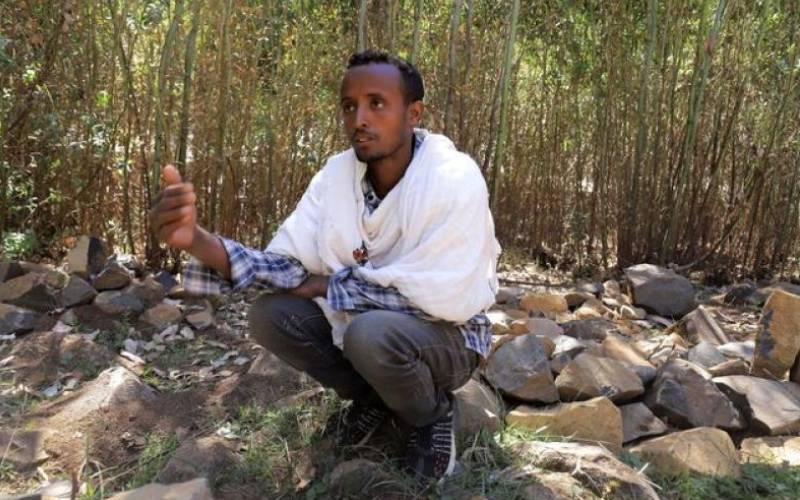
In the dappled shadows of a glade of cypress and eucalyptus, a deacon of the Ethiopian Orthodox Church adjusted his roughly-spun cotton shawl and knelt by a white-washed grave. "He was my best friend," Betsiha Derresse said. "We did everything together - sleep, work."
In August, civil war reached the thin air of this town in the Amhara region, 3,000 metres up in a mountainous landscape once home to Ethiopia's ancient rulers. Forces from neighbouring Tigray province had arrived. The delicate-framed Betsiha, 28, said he and many others hid in the forest, but his friend and fellow deacon, Mulat Aynekulu Mekonnen, turned back to collect a book.